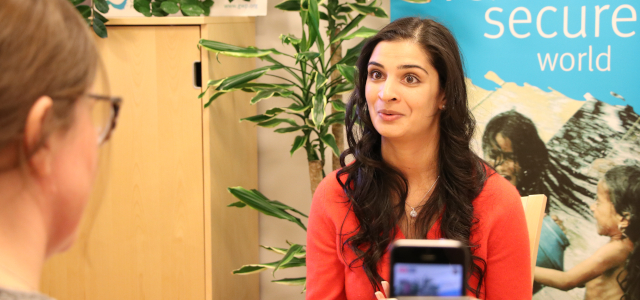In 2014, Kanika Thakar was working with the UN Environment Programme, where she was taking part in negotiations around the Sustainable Development Goals (SDGs), on the formulations of the SDGs.
"We were talking about things like sanitation and hygiene, open defecation, and WASH. These terms sound very clean, but the real sense of what was happening was not being captured: that there are people out there who literally are pooping outside, or pooping right into their water resource; into the same resource that they're later going to drink that day. That was the first time I realised how big the problem is – there are 2.8 billion people in the world affected by this; people who don't have a toilet,” says Kanika.
Breaking down taboos
That was when she got the idea to #ToiletTalk. “How can you solve a problem if we can't even talk about it? If we're not comfortable using the actual words. We have to change this; we have change the way the world values and talks about toilets” she says.
Kanika wants to break down the taboo that surrounds the word toilet, by translating terms and changing words – “saying what we really mean”. This is something she is now working on through #ToiletTalk. The initiative also works on awareness-raising around the issue - educating people about the problem.
“We can no longer address waste as a problem or something we need to forget about. We need to view waste as a resource and an opportunity to get energy, nutrients and other life sustaining materials. We have to change that conversation, and I think a big thing is just changing the way we talk about it.”
Kanika says everybody can do something about this: “It all starts with having a conversation. By people stopping and realizing that you have a toilet, and acknowledging the value of that,” she says.
Watch the full recording of Kanika’s interview on GWP’s Facebook page.

